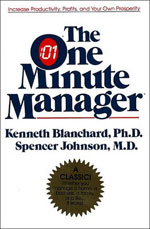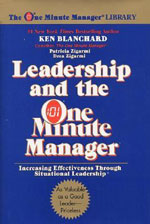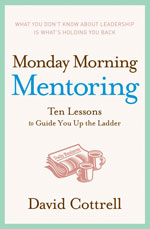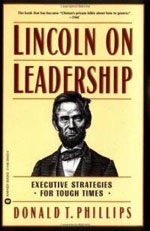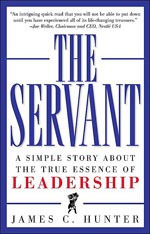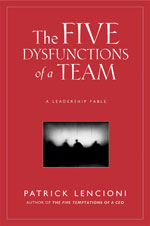 In recent months, I wrote a series of posts spotlighting some of our great sales leaders at ConMed. These posts have been so well-received that I would like to do several more in the weeks ahead. Whether you are interested in working at ConMed, looking to improve your medical sales record, or simply hoping for new ideas on how to become more successful in general, my hope is that you will glean insights and helpful tips from reading about these hardworking and successful colleagues of mine. After all, we are on the journey to success together. Enjoy!
In recent months, I wrote a series of posts spotlighting some of our great sales leaders at ConMed. These posts have been so well-received that I would like to do several more in the weeks ahead. Whether you are interested in working at ConMed, looking to improve your medical sales record, or simply hoping for new ideas on how to become more successful in general, my hope is that you will glean insights and helpful tips from reading about these hardworking and successful colleagues of mine. After all, we are on the journey to success together. Enjoy!
This particular colleague hit the ground running and made an immediate impact on his territory by achieving Altrus quota in his first quarter. His ability to cultivate, develop, and leverage relationships along with his untiring work ethic are keys to his success. He does an excellent job of not only digging his roots in deep within each account, but also with each surgeon. This innovative leader’s ability to sell the whole bag gives him multiple reasons to get into the operating room daily, which is where he focuses on developing his relationships, finding more reasons to work with his champion and target surgeons, pitching new surgeons, and always leaving with a reason to come back. He is well-organized, always has a plan, and sets himself apart from his competition with his strategic and constant followup activities.
I asked my colleague some questions regarding his secrets to success in medical sales:
What do you need to love in order to sell Altrus or be in medical sales? What would be an indication that someone would not fit well into the medical sales culture?
There are a lot of answers to this question, but I feel that if you love daily challenges and every day being different and if you are always trying to push business forward while building and maintaining relationships, you will love selling Altrus and being in medical sales. What excites me each and every day is actually not knowing what challenge lies ahead. You never know what type of doctor you are going to encounter or if his day is good or bad.
But, you also have to decide how you are going to push business forward while building a better relationship. If you hate being challenged every day and dealing with many different types of personalities, then this is not for you. If you don’t know how to adjust your personality to fit the person you are talking to (I call it situational awareness), you will not like selling Altrus or being in medical sales.
Have you ever had a surgeon that, at the beginning, was completely disinterested in your product but is now a big believer? What changed that surgeon’s mind? How did you get through to him or her?
Relationships and the ability to leverage relationships are key factors for this scenario. Half the battle is getting physicians to not just listen but to “hear” what you are saying and believe in the product. A good relationship when leveraged properly gives you this.
I had a physician when I first came on board who was to be my only Altrus user in my territory. I went to speak with him about Altrus and to try to observe my first case. Come to find out, he hated Altrus and wasn’t even using it any longer. Great, I thought; well, he has to give me a case since I’m new. Nope—not at all. Instead, I learned he had issues with the product.
I had to think of a way to get him believing again. I had to think outside the box. I observed a competitive case with him, and this time I observed some pain but also pitched two of our other products. He agreed to try one of them, which helped me get more comfortable with him and build that relationship.
I also went to a couple of other physicians, pitched Altrus, and was able to get cases on the books in the same hospital. When my new Altrus target started getting comfortable, I was then able to offer a case observation to the physician that didn’t believe in Altrus at the time. This was easy to do because I was already in the operating room and building the relationship while sharing the other doctor’s (the one who had agreed to try Altrus) success. This unbelieving doctor could not believe that someone else was having success that he didn’t. I feel this is what the doctor thought, and since I had a strong relationship with him, it was easier to get a commitment to do his next case with Altrus. From there, it was on me. I was very vocal in the case and have been going forward. He now does anywhere from 2 – 3 cases a week and doesn’t really need me any longer, but I show up when I can to keep that relationship strong.
What has been your most exciting moment in the OR?
The most exciting moment in the OR for me is when a new evaluation with a champion doctor or potential champion doctor goes great. A difficult case in which the doctor expresses his feeling that another modality could not have achieved success but that Altrus did provides a great feeling as well.
What has been your most challenging moment in the OR?
The most challenging moment in the OR comes when you have a big evaluation going on with a big doctor, the case goes horribly, and you are brand new and don’t know what to say in a tough situation. The doctor pulls out a competitive product and gets the case done. Working around that is a true challenge.
How important is goal setting to your success? How do you go about determining your goals and achieving them?
Goal setting is extremely important. If a S.M.A.R.T. goal is not set, it will be very difficult for a person to evaluate his or her progress. A goal is a personal target separate from the company; it should exceed your current responsibilities and is likely even more robust than a top-producing and exceeding plan. What does the company expect from you—and what do you expect from yourself?
If your personal goals are higher, then company goals should be easily attainable. I also set my goals in such a way that I am always looking for wins. Every situation you are in and goal you set is a way to push business forward. If the goal that day was to complete a case with Dr. So-and-So and was canceled, how do you turn that goal into a new goal and push business forward? Instead of leaving the OR, find a reason to be there and push business forward.
How do you handle adversity in the field when things don’t go your way?
Adversity is a necessary evil that causes you to continuously get better; re-tool, think outside the box, and develop resources to overcome challenges. Adversity can be instrumental in keeping you on your toes, thinking, and developing professionally. Having a short memory with regard to adversity can also help as you continuously move on to the next target. Don’t take things personally; it comes with the business. You need to get kicked in the teeth in order to grow.
How do you plan your day? How far in advance do you plan?
I plan a week in advance based on goals, territory needs, and company initiatives. My plan is always subject to change based on priority of needs and where the most impact can be made. Larger-scale deals and more influential targets might need planning weeks in advance. This way, you can come up with the proper strategy to dig deep into your bag and attack all business. If my calendar for the following week is not full by Friday, I wasn’t making a big enough impact even as far back as two weeks ago. If you are out there daily getting after it, filling your calendar for the month should not be difficult.
What is your best advice for a brand new salesperson?
If there is any advice I can give to a new salesperson, it is to get in the OR. If you don’t have a reason to be there, make one. Since I have come on board with ConMed, I have made it a goal to spend the first 3 – 5 hours of each working day in the OR—whether I have cases or not. If I don’t have a reason to be there, I make one. Being in the OR can only bring success. Always think of ways to drive business forward even when things don’t go as planned. All negative situations can bring positive outcomes if you find the angle that needs to be worked. Our bag is huge—use it for all it’s worth!












